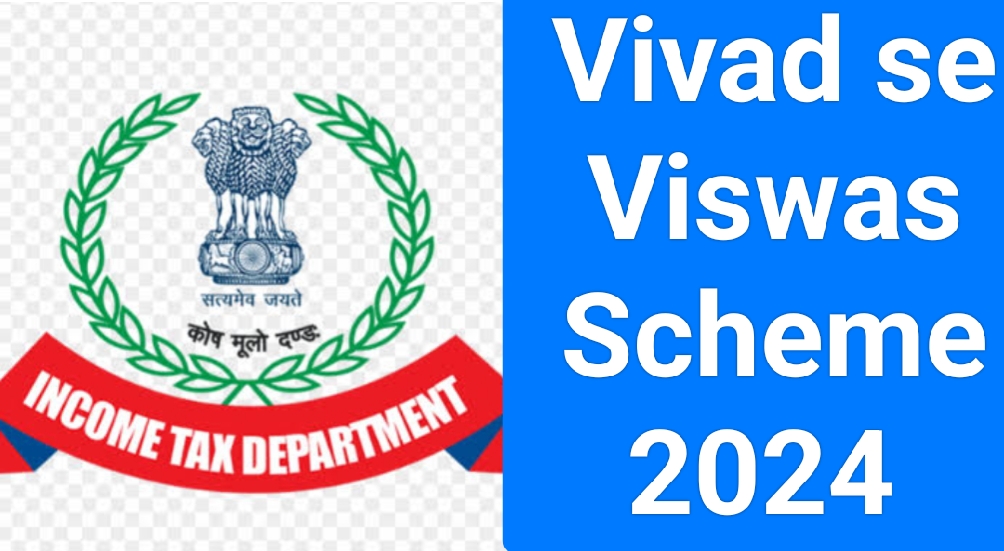To be eligible under Vivad se Viswas Scheme 2024 (VSV 2.0), tax disputes must be pending as of the cut-off date of July 22, 2024. One of the key benefits of settling disputes under VSV 2.0 is the waiver of penalties and interest, with a guarantee that no prosecution will be initiated after settlement under this scheme.
The Finance Ministry has notified that the second edition of the Direct Tax Vivad se Vishwas Scheme 2024 (VSV 2.0) will be operational from October 1, 2024. This scheme, introduced in the Budget 2024, aims to reduce the backlog of income tax litigation and offer a settlement mechanism for disputes.
As per the official notification, “In exercise of the powers conferred by sub-section (2) of section 88 of the Finance (No. 2) Act, 2024 (15 of 2024), the Central Government hereby appoints the 1st day of October, 2024, as the date on which the Direct Tax Vivad Se Vishwas Scheme, 2024 shall come into force.” While the starting date has been confirmed, the last date for the scheme’s operation is yet to be notified.
Key Announcements from Budget 2024
During the budget presentation, Finance Minister Nirmala Sitharaman announced the Vivad Se Vishwas Scheme 2024 to resolve income tax disputes pending in appeal. According to the budget documents, the scheme allows taxpayers and the Income Tax Department to file appeals related to disputes before the following appellate authorities:
- Joint Commissioner of Income Tax (Appeals)
- Commissioner of Income Tax (Appeals)
- Income Tax Appellate Tribunal (ITAT)
- High Courts
- Supreme Court
The Central Board of Direct Taxes (CBDT), through this scheme, aims for faster disposal of appeals under its jurisdiction.
Background: Success of Vivad Se Vishwas Scheme 2020 (VSV 1.0)
The introduction of VSV 2.0 follows the success of the original Vivad Se Vishwas Scheme 2020 (VSV 1.0). The first edition, launched for appeals pending as of January 31, 2020, saw a tremendous response from taxpayers and helped the government generate significant revenue.
According to reports, prior to the introduction of VSV 1.0, approximately 483,000 direct tax appeals were pending across different forums, locking in nearly ₹4.96 trillion in tax amounts. The scheme helped resolve over 1.46 lakh appeals (30%) and brought in ₹0.54 trillion in tax collections, with the government waiving approximately ₹0.45 trillion in taxes.
Rising Tax Litigation: Need for VSV 2.0
The number of income tax appeals continues to rise due to a greater inflow of appeals than the number of disposals. In response, VSV 2.0 has been proposed to address the mounting pendency of appeals and streamline the settlement of disputed issues. The aim is to reduce litigation without significant cost to the government.
Eligibility and Exclusions for VSV 2.0
To be eligible under VSV 2.0, tax disputes must be pending as of the cut-off date of July 22, 2024. The scheme provides taxpayers the opportunity to settle appeals, writ petitions, and special leave petitions pending before various appellate bodies such as the Supreme Court, High Courts, ITAT, Commissioner (Appeals), and Joint Commissioner (Appeals). It also covers cases where objections were filed before the Dispute Resolution Panel (DRP) but no final assessment order was issued, as well as pending revision applications before the Commissioner.
One of the key benefits of settling disputes under VSV 2.0 is the waiver of penalties and interest, with a guarantee that no prosecution will be initiated. Moreover, settlements under this scheme will not set a precedent.
To Access the related CBDT Notification Click Here
Also Read: Delhi High Court Rules: Income Tax Refund Cannot Be Denied Due to Form 26AS Discrepancies
READ MORE
Why India Needs a New Income Tax Act: A Comprehensive Overhaul
CBDT Forms Committee to Revise Income Tax Act 1961, Plans to Eliminate ‘Sunset’ Clauses

